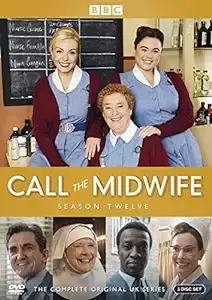 Buy or stream "Call the Midwife" on Amazon/Prime Video Buy or stream "Call the Midwife" on Amazon/Prime Video "Call the Midwife," that's where Wisdom met me after online Centering Prayer recently. The phrase that called to me from Wisdom of Solomon 6:12-20 was "appears to them in their paths," but I had no idea how She was going to appear because I was sick with COVID and able to do little after Centering Prayer but watch Netflix and sleep. All my plans for the week were thwarted. "I don't know how you'll meet me in my path, but I'd love for you to show up somehow," I silently and half-heartedly prayed. So I started watching the last BBC episode of season 12 of "Call the Midwife," and smiled when I saw how plans getting thwarted was the theme! With her big plans thwarted, Trixie, one of the midwives, needed to release her grasp on her ideal and open her hands to all of the Plan Bs being offered by her community. In doing so, she found them to be a better fit for her heart. Says narrator and actress in her eighties Vanessa Redgrave, about the community's efforts on behalf of Trixie as the last scene unfolds in episode 8: "It was makeshift. It was chaotic. It was perfect. It was like Mother Wisdom was speaking right to me (and not just about being sick for a week)! I stopped the show and backed it up numerous times to listen to the voice of one who had born witness to many deaths and births of people and plans. I wrote down her words as an extension to the Wisdom of Solomon, savoring them, allowing them to strengthen my heart and soul.
A week later as the Centering Prayer group continued with Wisdom of Solomon during the time of Lectio Divina following the silence, two phrases from 7:7-14 called to me: "in her hands uncounted wealth" and "unfailing treasure." I couldn't help but think of how Wisdom opens our eyes to a different kind of wealth, a more lasting treasure. Once more, Mother Wisdom's voice, sounding now like Vanessa Redgrave, echoed in my ear, "Here are life's riches next to you..." "Call the Midwife" just may be my new phrase for prayer! Wisdom is certainly showing Herself to be a dependable and delightful Midwife to the Soul! (You can watch "Call the Midwife" on PBS or Netflix and/or join me for online Centering Prayer sometime! ) "What a luxury!" a friend said to me when she heard I was going on a silent retreat.
"I've discovered a silent retreat is not a luxury, it's a necessity!" I replied. She had no idea how serious I was about my need for silence. At the beginning of July, my body was letting me know I needed a pause--irritability & a short fuse, quick to tears, constant tiredness, feelings of overload & overwhelm, etc. My spouse was letting me know he needed a pause given how his own emotional and physical weariness had intensified by the loss of his father earlier this year. My kids were letting me know they needed a pause to recover from the pressure of school & sports schedules as well as a very active June. Looking at our July schedule, we decided the planned family vacation to Seattle was not a wise idea. It was full of activity rather than rest. And even though we had been looking forward to it for a long time, we would not push through, instead we would pause. While it was to look differently for each of us, all of us needed silence and solitude. Russ went to Missouri to stay at his dad's house by himself then I went to Sacred Heart Monastery in Cullman, Alabama (pictured above) for a private silent retreat. And the kids spent time inside and outside their rooms, painting and playing driveway basketball, allowing for some slow summer days at home. A pause offered us space to grieve and breathe. A pause also helped us see! "When your eyes are tired, the world is tired also," begins poet David Whyte in "Sweet Darkness" from The House of Belonging. When tired, I need to rest my own eyes so I can see the world differently. Of course this is both literal and metaphorical! At Sacred Heart, I needed to literally sleep and have large chunks of time with nothing to do but rest and remember. A sacred pause often looks so ordinary! Here's what mine looked like:
Did it solve all of my problems? No, but it gave me needed insight. It helped me see myself, my work, spouse, kids, and world in a new (or renewed) light. I was reminded that I am not and never will be superwoman. I was also reminded that I have the strength to establish or return to some much-needed boundaries. And my time away affirmed how much I need regular time away! My family, friends, and co-workers would agree! ______________________________________________ What are your indicators that you need a pause? Is there anything you need to pause, postpone, or plan differently? You don't have to go anywhere but sometimes it's good to get away. Even Jesus invited his disciples to "Come away all by yourselves to a quiet place and rest awhile." (Mark 6:31) As his disciples experienced, life can get to be too much sometimes so silence & solitude are a necessity! So whether or not you join me for Centering Prayer or the 4-day silent retreat at Sacred Heart Monastery in October, may you, too, allow silence and solitude to be friends on your journey. (This blog was part of an e-news sent July 2023. Sign up for Kasey's quarterly e-news here.) I had a blog I was going to share then decided not to...yet.
As I read what I had written, my supervisor's wise words echoed in my head, "Sometimes a spiritual insight or experience is meant to nourish you for a while before you offer it to others. Given away too soon and it loses some of its potency for your own heart & soul." So I decided to savor the experience and insight for now and share her words instead. In this age of social media, "sharing" can become compulsive (those of us who teach have this tendency as well)! Here's some encouragement to savor a moment or insight without sharing a photo or post...yet. I couldn’t go to sleep. Spending time in a crowded hospital with a dear friend who was dying left me restless and lying awake looking for God in the dark and finding nothing. It was the proverbial last straw. Too much. “What the hell?!...Does God even exist?!” I bitterly thought in the emptiness. The absurdity of being a spiritual director seemed to mock me in that moment. Every image of God I ever held did nothing to comfort me and the absence of images and comfort left me in a place of nihilistic rage and deep sadness. Even though I had read John of the Cross and Julian of Norwich by her hospital bed, recalling conversations we had enjoyed over the years about their (and our) experiences of love in the darkness, here I was struggling in my own dark night. “What a waste of my life! What a charade!” I thought as I recalled my life of being devoted to God and tending to the spiritual life, both mine and others, only to stare into the void of meaninglessness (and not for the first time). Furrowed brow, eyes squeezed shut, the rest of my body now as tense as my face, silently shouting—"Where is God in this chaos?” “Why even ask? Life is showing me there really is no God at all.” After a while, somehow, something small slipped in through the tightness and whispered, “God IS Chaos.” Before I could think, my brow and eyes started softening. My body noticed the truth before my brain could think about refuting what had just been spoken to me in the dark. Then an image appeared in my mind’s eye—Kali. I couldn't remember much about her, only that she's the Hindu goddess of chaos and destruction leading to life. Images of her can be quite disturbing (especially for those of us Westerners who don't know the symbolism) and here she was showing up in the stillness of night! Later I would read that in Hinduism, she is the ultimate manifestation of Shakti, the primordial energy, the mother of all (watch this video for more). Kali’s dark skin stands for this chaotic, life-birthing energy.  "Hearing ‘God IS Chaos’ and remembering the Hindu goddess, Kali…there was something strangely settling in that, and I was able to fall asleep,” I later texted a friend, a nurse experiencing burnout in a crowded hospital (she went on to write a piece of prose for her doctoral class assignment based on our text thread). __________ The next morning, I walked outside in my pajamas. The stifling heat, sticky humidity, and earsplitting cicadas continued the conversation— I was surrounded by the sound and sensations of chaos. I forced myself to sit in the discomfort. From that place I wondered if I had written anything down from the Icon-Writing Retreat my dear friend and I had attended together a couple of months earlier. I went inside, grabbed my journal, then returned to the front porch to find the dates of that weekend retreat. __________ In the first place, I had no time to go on that retreat. Life had been exhausting and the thought of painting anything in that state added to my overwhelm. In the second place, I wanted to spend time with my dear friend, knowing that stage 4 cancer was eventually going to rob us of time (by the way, Kali's name means both "darkness" and " force or fullness of time"). So I picked her up on a Friday morning in May and went. _________ There it was, May 13th-15th, along with a short entry for each day (the last one being, "I am so glad I went."). I was grateful that I had written down a few things, even though they had been forgotten in the rush of life’s challenges. I recalled how my friend and I sat side-by-side looking at the blank wood that our icons would be painted on and while she felt excitement, I felt dread. How was I going to do this?! The instructor told us to fill our brushes with paint and then said, “Relax, because the first stroke when it comes to painting an icon is called The Chaos Stroke!” Immediately I softened and a hint of excitement even found its way inside my weary head. The Chaos Stroke is named so because it represents the primordial energy at the beginning of Creation found in the first chapter of Genesis in the Hebrew Bible. Our spontaneous swirls and waves echoed the Spirit (or Wind or Breath) of God, moving over the surface of the deep, dark waters. And like the Genesis account, step by step, day by day, things started appearing where before there was nothing but potential in the eye of the Beholder. From the chaos within me, from the chaotic swirls on my wooden panel, emerged a rendering of Rublev’s Trinity from the 15th century!  My finished icon of Rublev's Trinity My finished icon of Rublev's Trinity I smiled sitting on the porch, in awe of the synchronicities…chaos, Kali, cicadas, a journal entry about the Chaos Stroke from an icon retreat attended with this friend whose impending death had ushered in another layer of chaos... Nothing had changed. It still felt awful to know my friend was going to die (and she did, less than 24 hours later). And the things that were a mess in my life, were still a mess. Nothing had changed this, and yet… Being open to “God Is Chaos” had strangely allowed comfort and brought the awareness that God was also “With Me in Chaos.” The latter recalls the message gifted us through the person of Jesus the Christ, who was called Emmanuel, God-with-us. Light began shining in my darkness once more. Holding the paradox of "God Is Chaos" and "God With Us in Chaos," I remembered the expression that emerged on the face of the center figure, the Christ, in my friend’s painting of the Holy Trinity—we laughed and called him the “Mischievous Jesus.” He knew something we did not...yet. Even now, words fail to describe how, in darkness and in light, I keep being beckoned into the at-times-difficult, divine dance that Rublev painted years ago, his brush beginning with Chaos. During these turbulent times we must remind ourselves repeatedly that life goes on.
This we are apt to forget. The wisdom of life transcends our wisdoms; the purpose of life outlasts our purposes; the process of life cushions our processes. The mass attack of disillusion and despair, distilled out of the collapse of hope, has so invaded our thoughts that what we know to be true and valid seems unreal and ephemeral. There seems to be little energy left for aught but futility. This is the great deception. By it whole peoples have gone down to oblivion without the will to affirm the great and permanent strength of the clean and the commonplace. Let us not be deceived. It is just as important as ever to attend to the little graces by which the dignity of our lives is maintained and sustained. Birds still sing; the stars continue to cast their gentle gleam over the desolation of the battlefields, and the heart is still inspired by the kind word and the gracious deed. There is no need to fear evil. There is every need to understand what it does, how it operates in the world, what it draws upon to sustain itself. We must not shrink from the knowledge of the evilness of evil. Over and over we must know that the real target of evil is not destruction of the body, the reduction to rubble of cities; the real target of evil is to corrupt the spirit of man and to give his soul the contagion of inner disintegration. When this happens, there is nothing left, the very citadel of man is captured and laid waste. Therefore the evil in the world around us must not be allowed to move from without to within. This would be to be overcome by evil. To drink in the beauty that is within reach, to clothe one’s life with simple deeds of kindness, to keep alive a sensitiveness to the movement of the spirit of God in the quietness of the human heart and in the workings of the human mind-- this is as always the ultimate answer to the great deception. Excerpted from Meditations of the Heart by Howard Thurman, published by Beacon Press, 1953. _____________________________________________ The words of this spiritual mentor of Martin Luther King, Jr., can still offer us wisdom during times of rising anger and increasing hopelessness. We often reflect on the writing of Howard Thurman in Wisdom Tree Collective’s School of Spiritual Direction. He was a civil rights leader, a theologian, author, academic, and pastor who was a mystic at heart, finding solace in nature—a favorite oak tree was a spiritual friend, a nonhuman elder & mentor. Thurman also co-founded the Church for the Fellowship of All Peoples in San Francisco, the first racially integrated, intercultural church in the United States, which also valued the creative arts as a way of sharing the Good News. He was familiar with suffering. Let his words speak to your soul today. Read more of his wisdom in his book Meditations of the Heart. As I was sitting in silence with someone in spiritual direction, a rendering of St. Francis of Assisi by Daniel Ladinsky, came to mind. I reached over, found the little poem and read it. A smile grew on my directee's face and tears of gratitude began to flow. After ending the silence she said, "Kasey, how did you know I needed that old squirrel?!" Maybe you need Saint Francis and the old squirrel, too! THE SACRAMENTS
I once spoke to my friend, an old squirrel, about the Sacraments-- he got so excited and ran into a hollow in his tree and came back holding some acorns, an owl feather, and a ribbon he had found. And I just smiled and said, "Yes, dear, you understand: everything imparts His grace. -St. Francis of Assisi, rendering by Daniel Ladinsky, Love Poems from God: Twelve Sacred Voices from the East and West As I stepped on the shovel, I couldn't help but smile.
On Sunday, I joined other members from Wisdom Tree Collective as we partnered with Blessed Earth Tennessee, to plant 12 trees at Jones Brummett Elementary School. Why? Wisdom Tree Collective is a nonprofit that I helped co-found this year (after 3 years of planning!). My main branch of WTC is its School of Spiritual Direction and our very first cohort of students just started their third month of a 2-year online training program to become fulltime Spiritual Directors or bring a Spiritual Direction lens to their current callings. I continue to be amazed by those who are going through the program (from around Middle TN; Joplin, MO; and Tacoma and Seattle, WA) and the Spiritual Directors who are mentoring them! While it's a lot of work this first year, as I am developing both the content and rhythm, to say it's exceeding my expectations would be an understatement. Already I can tell you that I will whole-heartedly send people to each one of our current students for spiritual direction next year. Back to the trees... Part of Wisdom Tree Collective's commitment is to give back to the Earth by honoring our namesake and the ways we have experienced and continue to experience Divine Wisdom through trees. How have trees been a gift to you? Do you have any early childhood memories associated with trees? To read some of ours, go here. For every person who participates in our training program, classes, or retreats, we will plant a tree in their name. This year we planted 12 trees—9 for each of the students in the spiritual direction program and 3 on behalf of the 3 founders, the 6 spiritual direction mentors, and the Triune Dance of Love in which we find ourselves! And Heather Bennett of Blessed Earth Tennessee, found us the perfect location for our first tree-planting day—a brand new school in the Lebanon Special School District here in Wilson County, TN. She had no idea how much symbolism there was in planting trees around a new school's playground. As we dug the holes and planted the Sycamores, Sweet Gum, Tulip Poplar, Red Maple, White Oaks, Live Oak, and Southern Magnolia, I felt a sense of awe. Both of us are in our first year. A new elementary school has been planted in our community and trees have now been planted by the new Wisdom Tree Collective's School of Spiritual Direction. Looking up at the playground I smiled as I recalled all the times over the years I have talked about "the playground of God" or "the playground of the Holy Spirit" during classes and in spiritual direction. What a holy surprise! Clearly God was joining us in celebration on this crisp and sunny day! Are you interested in joining me for the 2022 fall cohort? The Certificate in Spiritual Direction Application can be found here. And be on the lookout for both online and in-person retreats and classes offered by Wisdom Tree Collective next year! By the way, if you're in the area, let me know if you drive by Jones Brummett Elementary and see our trees. ______________________________________ To learn more about Blessed Earth Tennessee, go here. And for more information about Wisdom Tree Collective, go here. I’m tired, so I’m giving myself permission to not write much this week. What can you give yourself permission to not do this week?
Instead, I'm going to let another voice speak by offering 2 poems from a book I’m revisiting called I Heard God Laughing. Reading it is like water to my weary soul. I hope you enjoy these two renderings of the Persian poet, Hafiz, by Daniel Ladinsky. Pulling Out the Chair Pulling out the chair Beneath your mind And watching you fall upon God-- What else is there For Hafiz to do That is any fun in this world! _________________________________ Tripping Over Joy What is the difference Between your experience of Existence And that of a saint? The saint knows That the spiritual path Is a sublime chess game with God And that the Beloved Has just made such a Fantastic Move That the saint is now continually Tripping over Joy And bursting out in Laughter And saying, “I Surrender!” Whereas, my dear, I am afraid you still think You have a thousand serious moves. 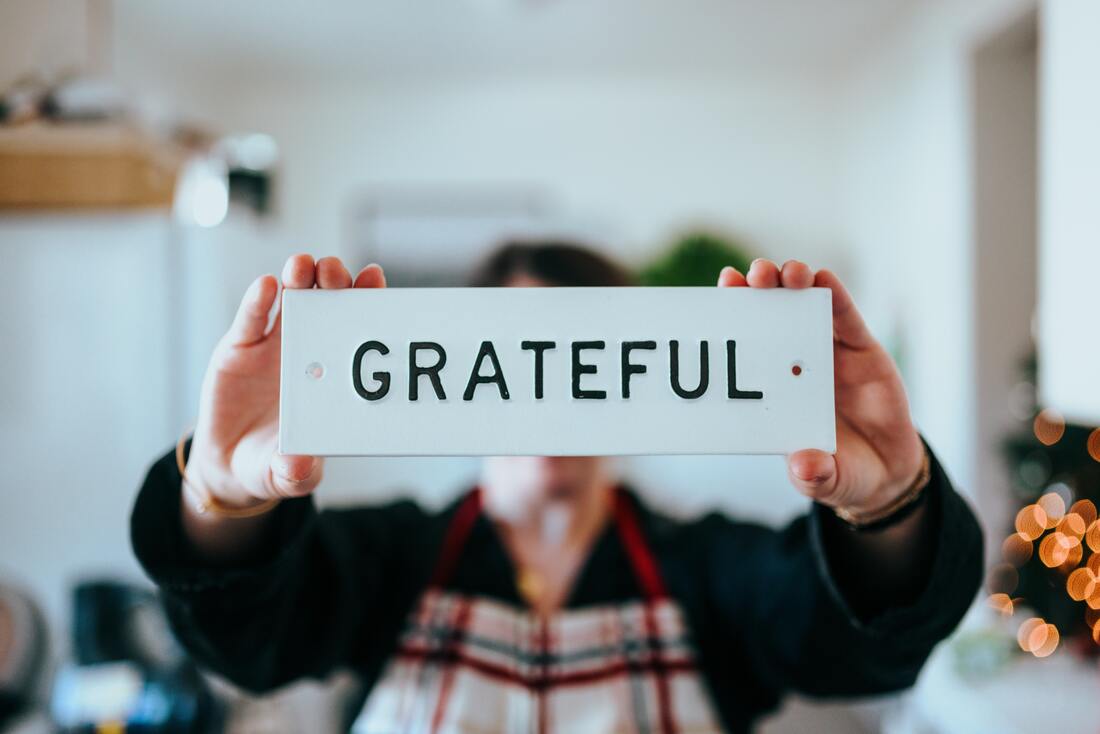 Photo by Nathan Dumlao on Unsplash Two people in my life are facing a terminal illness. And here’s what else they have in common: gratitude. Every time I talk to them, whether a simple conversation or in spiritual direction, I am amazed at the depth of their gratefulness. Their faces light up. It is like their diagnoses gave them new eyes to see life. And they are overwhelmed by the beauty right in front of them. Even more so, they are overwhelmed by the peace of God inside of them. The windows of their souls reflect it in such delightful ways. “Every day I wake up so happy!” one exclaimed to me (without a single relationship or situation changing in their life). How is this possible? Much of it is pure gift. Grace. And some of it, I am sure, is because both have done inner work in the years leading up to this moment. They learned how to listen deeply to God and how to listen deeply to others. They entered into meditation and mindfulness. They learned to play and be playful. They sought out spiritual direction and a precious few others to accompany them along their inner journey. Now their outer journey reflects what they cultivated within. Awe. Humor. Peace. Kindness. Joy. (Just to name a few) I am honored to be a witness. They are teaching me a lot. One of their gifts is reflected in the Sufi poet, Rumi's words, “I saw grief drinking a cup of sorrow and said to it, ‘Tastes sweet does it not?’ Grief confessed, ‘You’ve caught me and ruined my business. How can I sell sorrow when you know it’s a blessing?’” If you have no idea how sorrow can be a blessing and if you do not wake up happy, maybe it is time for an inner journey of your own. There is so much to be grateful for in this life.  Photo by Damian Siodłak on Unsplash Photo by Damian Siodłak on Unsplash Choices can be difficult. Wanting to make the perfect one, I can struggle with “buyer’s remorse.” It can be about a purchase or any decision I have made or need to make (especially if others are concerned). Did I take enough time to make the best choice? What if I didn’t? Was I right? Was I wrong? I will replay the options. Especially if my choice does not please others, I will replay it even more. Sometimes it can become compulsive, stuck on a loop in my brain. We all have experienced the stress that comes from obsessive over-thinking. Over the years, I have tried a variety of ways to “throw a stick in the spokes” and stop the constant thought-cycle. The practice of Centering Prayer has been one thing that, gradually, has made a difference. Centering Prayer can be a challenge as one gets to discover all the places the unruly mind wants to wander instead of stay in the present (it is certainly not interested if the present has feelings it doesn’t want to feel!). As I have grown in acceptance of the brain’s (sometimes bizarre) escapades to do anything but feel reality and rest in God, I have grown in awareness of when I am joining its invitations to run away to the circus of compulsivity. Here are two simple ways of returning home:
The keys to both are patience and gentleness (two indicators or “fruits” of the Holy Spirit as described in Galatians 5:22-23). It may take a while, but with gentle persistence old compulsive paths will be less and less traveled. And relief will rise with your every return to the pathways of peace. |
AuthorKasey is a scarf, ball and club juggling spiritual director just outside of Nashville, TN. Play helps her Type-A, Enneagram 1 personality relax, creating space for poetry and other words to emerge. She also likes playing with theological ideas like perichoresis, and all the ways we're invited into this Triune dance. Archives
January 2024
Categories
All
|
By clicking “Sign up for E-News” I consent to the collection and secure storage of this data as described in the Privacy Policy. The information provided on this form will be used to provide me with updates and marketing. I understand that I may modify or delete my data at any time.
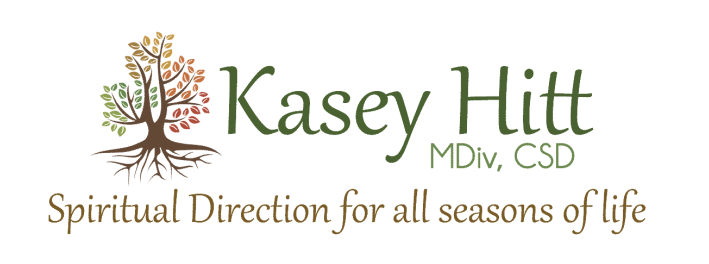
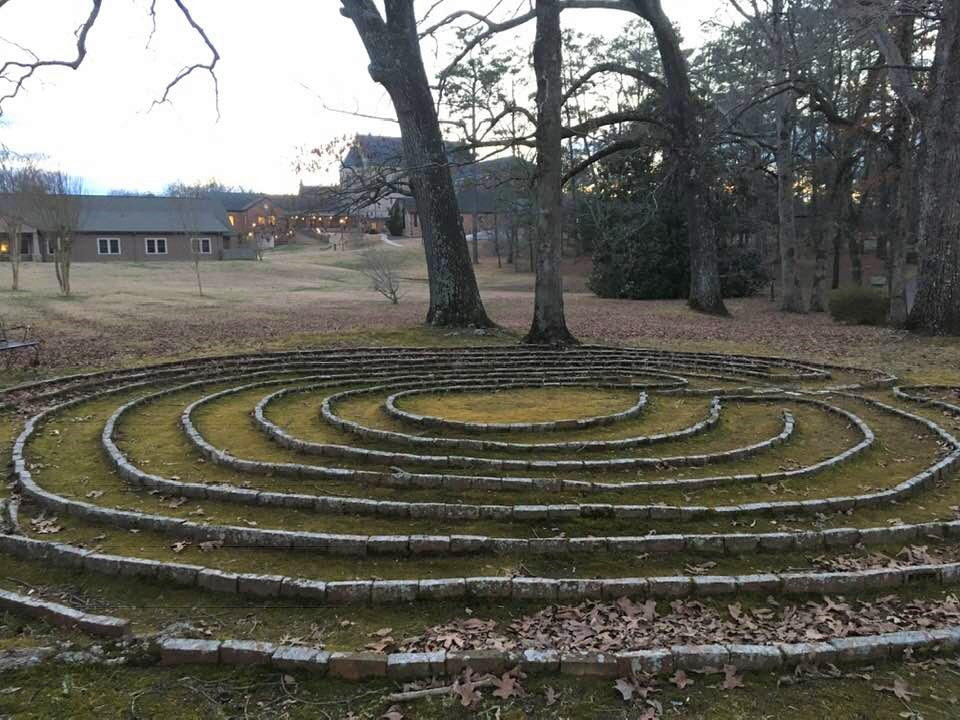
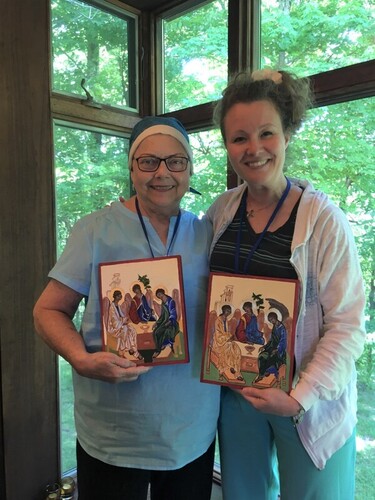
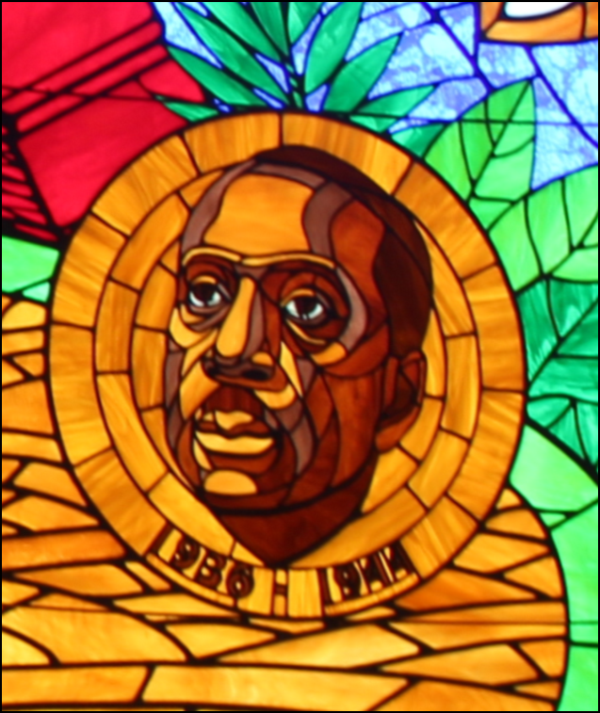
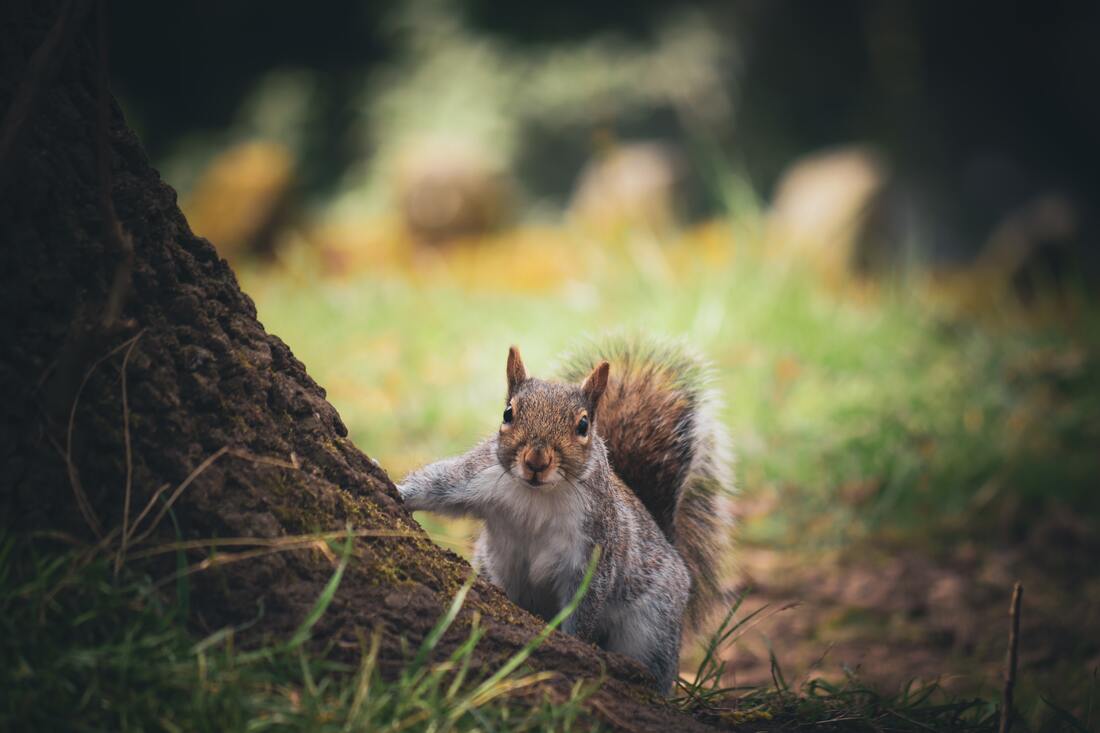

 RSS Feed
RSS Feed

